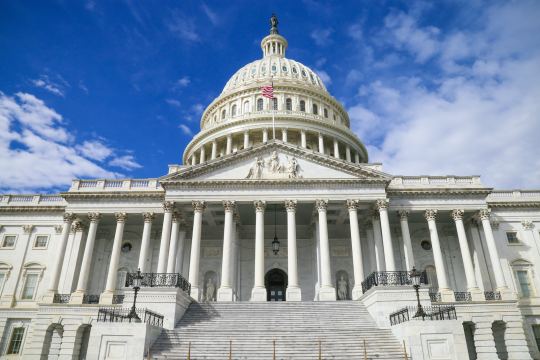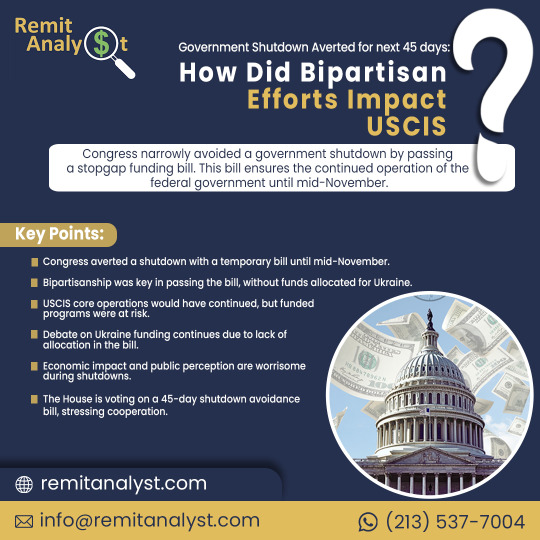#GovernmentShutdown
Explore tagged Tumblr posts
Text
#elonmusk#donaldtrump#usaid#politics#governmentshutdown#usforeignaid#politicalnews#musktrumpdeal#foreignpolicy#usgovernment#trumpnews#globalaffairs#aidpolicy#politicalmoves#internationalaid#uspolitics#trump2025#elonmusknews#foreignrelations#politicaldebate#governmentreform#grammys#arsmci#haaland#chappell#billie#arsenal#elma#drake#kendrick
2 notes
·
View notes
Text
Breaking News: Mitch McConnell’s Senate Legacy Under Fire as Dirty Games Resurface
In a stunning revelation, new reports have surfaced exposing the allegedly dirty and illegal tactics employed by Mitch McConnell during his tenure in the Senate. Accusations of blocking critical judicial appointments, using the filibuster to stifle legislative progress, and orchestrating government shutdowns to enforce Republican priorities paint a troubling picture of the long-time leader’s…
#Corruption#GovernmentShutdown#InvestigativeReporting#MitchMcConnell#Moscow Mitch#politics#Retirement
0 notes
Photo

Federal workers face uncertainty over potential shutdowns as they approach Christmas, with worries about pay and job security looming. https://globalcommons.onrender.com/politics/government_funding_difficulties_create_gloom_for_federal_workers_before_christmas/
0 notes
Text
The Friday Mix Vol. 62 (Part Two)
Digital Crate Digging Continues, check us out as we come through on this Flashback Friday / Fabulous Friday! The saga / struggle continues but we respond by going into funk mode as we let the music play! We’re also in attack mode due to the information overload, now asking others is it all fun and games in that forsaken city? We see what they’re saying, in the night clubs there’s a heavy…
#DariusSyrossian#discofunk#FabulousFriday#FlashbackFriday#governmentshutdown#Hardsoul#housemusic#informationoverload#MarkArmitage#Nukewood#NYsFinest#ODogDayParty#PaulMondot
0 notes
Text
Trump’s call to abolish the debt ceiling sparks debate: bold reform or economic risk? Uncover the truth behind the controversy.
youtube
#news#money#gold#economy#dollar#silver#bitcoin#trump#DebtCeiling#TrumpNews#USPolitics#EconomicReform#GovernmentShutdown#Youtube
0 notes
Text
Speaker Johnson Threatens Government Shutdown to Advance Trump's Election Lies
As Congress reconvened this week in Washington, House Speaker Mike Johnson has made headlines with a controversial strategy that appears more focused on supporting Donald Trump than addressing the needs of the American people. Johnson, who represents Louisiana, has introduced a proposal that threatens to shut down the government in a bid to advance one of Trump’s most persistent falsehoods: that Democrats are using noncitizens to influence federal elections.

The proposal, which aims to extend government funding until March, includes a provision for the Safeguard American Voter Eligibility Act (SAVE). This bill requires proof of U.S. citizenship to register to vote in federal elections, a move many see as a thinly veiled attempt at voter suppression. The SAVE Act, while positioned as an election security measure, faces significant opposition and is unlikely to pass in the Democratic-controlled Senate.
Johnson's tactics have drawn criticism from both sides of the aisle. His plan is seen as a "poison pill" designed to fuel Trump's baseless claims about voter fraud, rather than focusing on substantive legislative work. The suggestion that Democrats rely on noncitizen votes is unsupported by facts and has been debunked repeatedly. Since the 1920s, it has been illegal for noncitizens to vote in federal elections, a fact reinforced by legislation signed by Bill Clinton in 1996.
Johnson’s actions have not only alienated some of his own Republican colleagues but have also raised concerns about a potential government shutdown. A shutdown could have serious economic repercussions, as evidenced by the last shutdown from December 2018 to January 2019, which cost the U.S. economy $11 billion.
Rep. Cory Mills, a Republican who co-sponsored the SAVE Act, has called Johnson’s maneuver a "farce," highlighting the impracticality of implementing the law before the upcoming election. Reports suggest that Johnson could only afford to lose a few Republicans on this issue, but dissent within his party is growing.
In response to the broader issue of congressional accountability, Rep. Angie Craig has reintroduced legislation that would withhold pay from members of Congress during a government shutdown. This proposal aims to address the lack of financial consequences that lawmakers face when they fail to perform their duties.
Despite the potential fallout, Johnson remains steadfast in his commitment to support Trump’s narrative. His recent statements reflect a disregard for the negative impacts a shutdown could have on federal employees and the economy. Johnson’s focus appears to be solely on fulfilling Trump’s demands, even as his approach jeopardizes the functioning of the government and the welfare of its employees.
As the September 30 deadline approaches, the stakes are high, and the political landscape remains fraught with tension. Johnson’s efforts to tie government funding to the SAVE Act underscore a broader struggle between partisan interests and effective governance.
0 notes
Text
Government Shutdown Looms Over Border Security: Will America's Safety Be Compromised? #bordersecurity #governmentshutdown
0 notes
Text
The Impact of the Government Shutdown on the Economy and Markets #Governmentshutdown2018 #Governmentshutdowneffects #Governmentshutdownnews #Governmentshutdown #USgovernmentshutdown
#Business#Governmentshutdown2018#Governmentshutdowneffects#Governmentshutdownnews#Governmentshutdown#USgovernmentshutdown
0 notes
Text
Congress Nears Temporary Deal to Avert Government Shutdown

Lawmakers are in the process of formulating a temporary bill to keep the government’s operations running until March, aiming to prevent a partial shutdown looming this week.
Funding Deadline and Expiry
Funding for key areas, including agriculture, energy and water, military construction and veterans affairs, transportation and housing programs, is set to expire on **Jan. 19**. The remaining government funding faces expiration on **Feb. 2**. Stopgap Measure Details The proposed stopgap measure, expected to be unveiled by congressional leaders on Sunday, would extend funding until **March 1** for the agencies at risk of being affected this week. This deal would provide lawmakers with an extension until **March 8** to allocate funds for other agencies and services, as reported by various sources.
Political Dynamics and Pressures
The anticipated agreement arises amid significant pressure on House Speaker Mike Johnson, R-La., particularly from the right flank of House Republicans. This pressure intensified after Johnson, alongside Senate Majority Leader Chuck Schumer, D-N.Y., announced a spending deal last week, calling for a spending package aligned with the debt ceiling deal reached by former Speaker Kevin McCarthy, R-Calif., and President Joe Biden, totaling around $1.66 trillion. Despite criticism and calls for deeper spending cuts, Johnson affirmed on Friday that he is not withdrawing from the deal. This controversy follows a few conservative House Republicans' attempt last year to remove McCarthy from the speakership as he collaborated with Democrats to avert a government shutdown. Potential Challenges and Vote Ultraconservative lawmakers may pose a challenge by attempting to disrupt a vote on the impending temporary measure, known as a continuing resolution, expected to be announced on Sunday. Both the House and Senate must pass this deal before Friday at midnight to avoid a government shutdown.
Implications of Government Shutdown
A government shutdown would entail the cessation of work and closure of all officials and federal agencies deemed “non-essential.” Thousands of federal employees could face furloughs. While "essential" federal workers, such as air traffic controllers and emergency personnel in national parks, would continue to work without pay, they would receive back pay once the shutdown concludes. However, subcontractors for the government may be left without work and would not receive back pay. Impacts of a shutdown extend to Americans beyond the federal government workforce. Delays in some food assistance benefits and potential pauses in certain food safety inspections are among the potential consequences. Read the full article
0 notes
Link
Federal workers face uncertainty over potential shutdowns as they approach Christmas, with worries about pay and job security looming. https://globalcommons.onrender.com/politics/government_funding_difficulties_create_gloom_for_federal_workers_before_christmas/
0 notes
Text

In a remarkable turn of events, Congress narrowly avoided a government shutdown by passing a stopgap funding bill. This bill ensures the continued operation of the federal government until mid-November. Following Senate approval, President Biden swiftly signed the bill into law, securing the functioning of government agencies and allocating critical funds for disaster recovery efforts. Notably, the bill did not include funding for Ukraine, a matter of international concern. Nevertheless, House Democrats rallied behind the bill as a pragmatic solution to prevent a disruptive government shutdown.
Key Points:
Congress successfully averted a government shutdown by passing a temporary funding bill, maintaining government operations until mid-November.
Bipartisan cooperation between House Democrats and Republicans was pivotal in passing the bill, which also avoided funding for Ukraine. USCIS, primarily funded by filing fees, would have continued core operations during a government shutdown, but programs relying on appropriated funds would have been affected.
Challenges and debates lie ahead concerning Ukraine funding, as the bill's failure to allocate funds reflects shifting Republican support.
Economic impacts and public perception are significant concerns during government shutdowns, with Americans often holding both parties responsible.
The House is voting on a 45-day shutdown avoidance bill, emphasizing the importance of cooperation in
0 notes
Text
😲🤬 Oh gee…really? A far-Left neo-fascist Democrat getting on television to blame Republicans for facilitating a government shutdown? Who would have thought?!
Of course, at no time in contemporary history has any Democrat – centrist or extremist – admitted that it is their spendthrift policies that routinely exhaust the federal budget. Another shocker!
0 notes
Text
#amazing#mean girls#tiktok#government shutdown#lmao#idk who did this but thanks lmao#government#its a jungle out there#bravo#jamaal bowman#governmentshutdown
0 notes
Text
Kool and The Gang– Emergency (Extended Remix)
Digital Crate Digging Continues, check us out as we proceed and continue with this O-Dog Day Party! The saga / struggle continues as life goes on as the toil and strife goes on, influenced by Full Moon in Aries energy? The saga / struggle continues per continuing resolutions passed by the House of Representatives to prevent a government shutdown! Politics aka politricks is what one kicks…
View On WordPress
0 notes
Text
New Plan to Avoid Government Shutdowns and Fund Border Security: What You Need to Know! #bordersecurityfunding #governmentshutdown
0 notes
Link
https://bit.ly/48tkp87 - 🌐 The Cybersecurity and Infrastructure Security Agency (CISA) is on the brink of furloughing more than 80% of its workforce amidst potential government shutdown, thereby reducing the lead U.S. cyber agency to a minimal staff. This limitation would handicap its ability to respond promptly to cyberattacks on federal agencies and critical infrastructure networks. #CyberSecurity #CISAFurlough 🏛 Despite the looming shutdown, most other Department of Homeland Security employees will continue working, contrasting sharply with the major furlough in CISA. Concerns are high, as the country hasn't thoroughly evaluated the implications of having the chief cyber agency operating at a significantly reduced capacity amidst escalating cyber incidents. #GovernmentShutdown #DHS 🛡 While critical staff within CISA will remain operational, the agency’s broad array of collaboration work and engagements with industry and sector leadership will likely be halted. This pause in operations, although ensuring continued basic security operations, would put proactive cybersecurity efforts on a back burner, leaving the nation more vulnerable to cyber threats. #CyberThreat #NationalSecurity 🚨 In emergencies, agencies can call back personnel, but the shutdown puts CISA and the broader federal government in a precarious position, potentially delaying response to significant cyber incidents. The situation underscores the importance of reevaluating workforce categorizations based on CISA’s growing responsibilities in the national cybersecurity landscape. #EmergencyResponse #CyberIncident 📈 Despite these challenges, CISA, one of the youngest federal agencies, has shown remarkable growth over the recent years, hiring nearly 1,400 people. The agency's ability to attract technical talent, however, may be at risk as potential shutdowns undermine the stability and appeal of government jobs.
#CyberSecurity#CISAFurlough#GovernmentShutdown#DHS#CyberThreat#NationalSecurity#EmergencyResponse#CyberIncident#CISAGrowth#TechnicalTalent#criticalinfrastructure#cisa#infrastructuresecurity#cybersecurity#government#shutdown#staff#concern#country#teambonding
0 notes